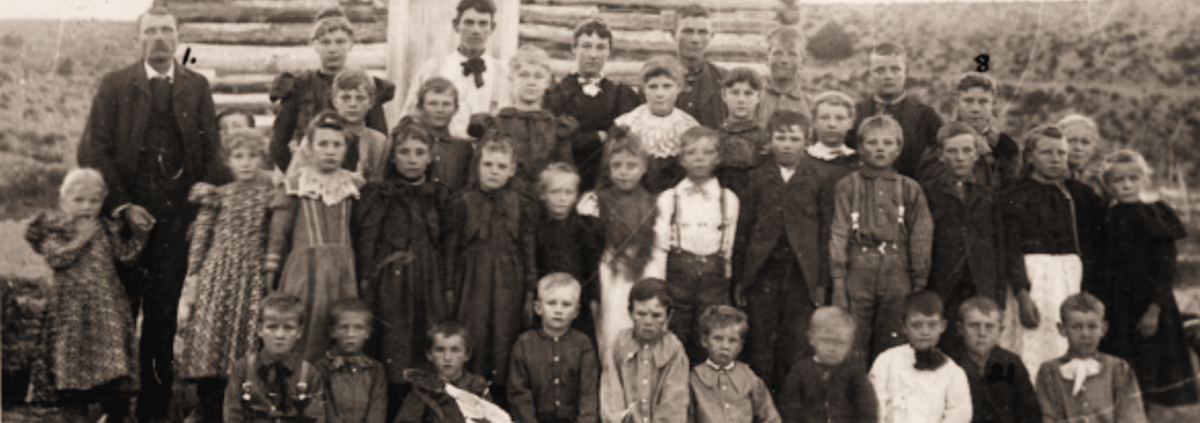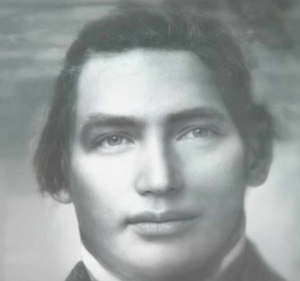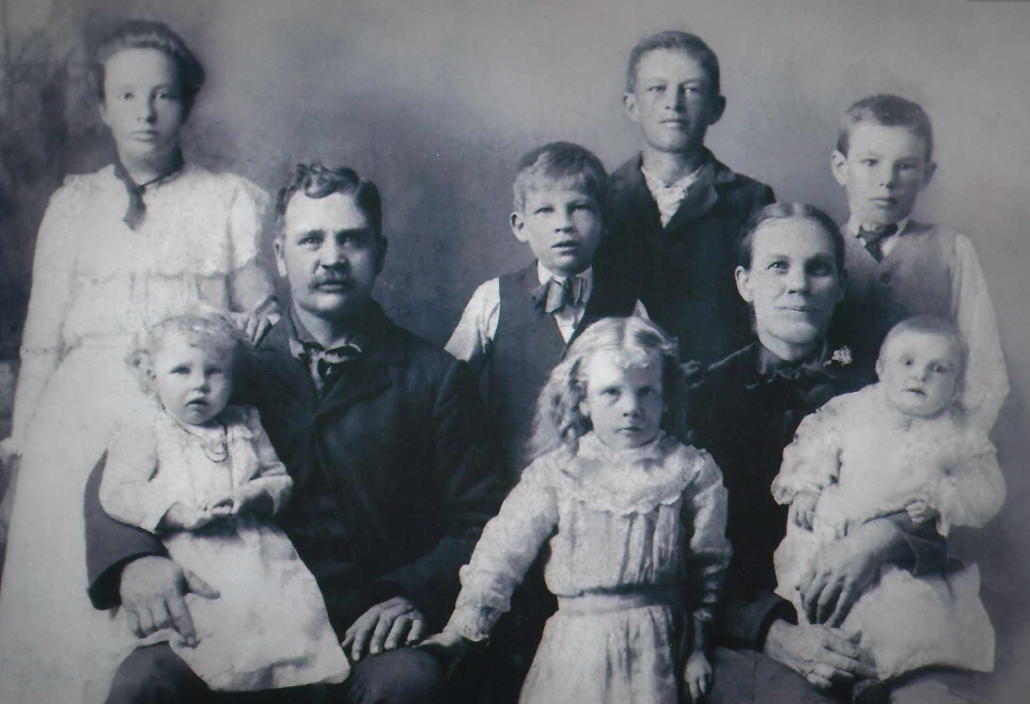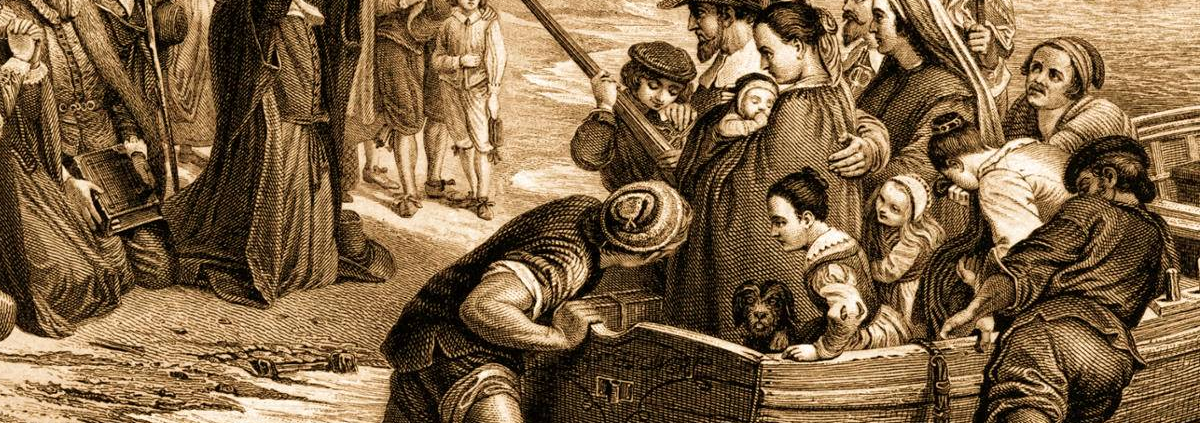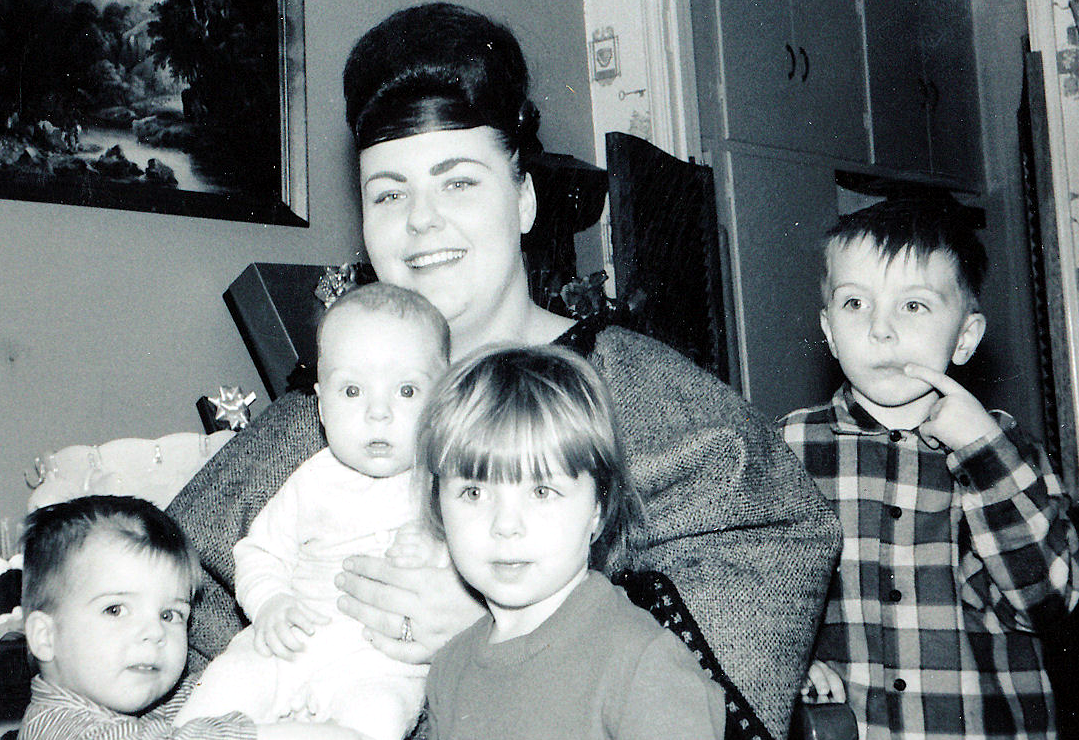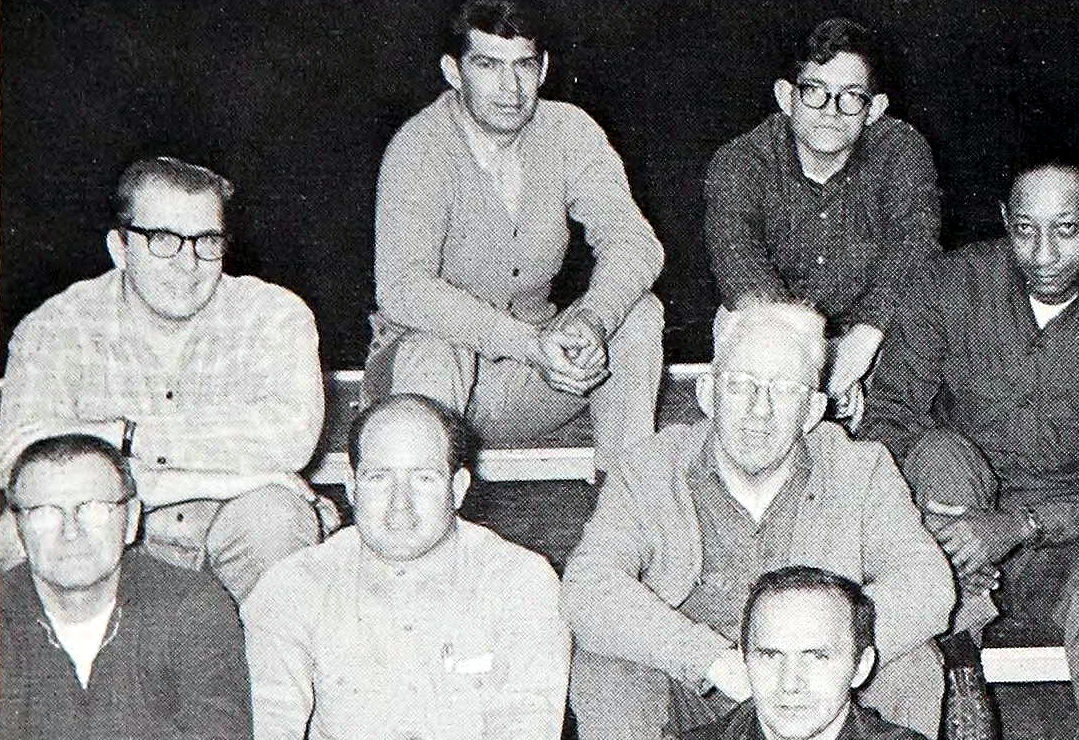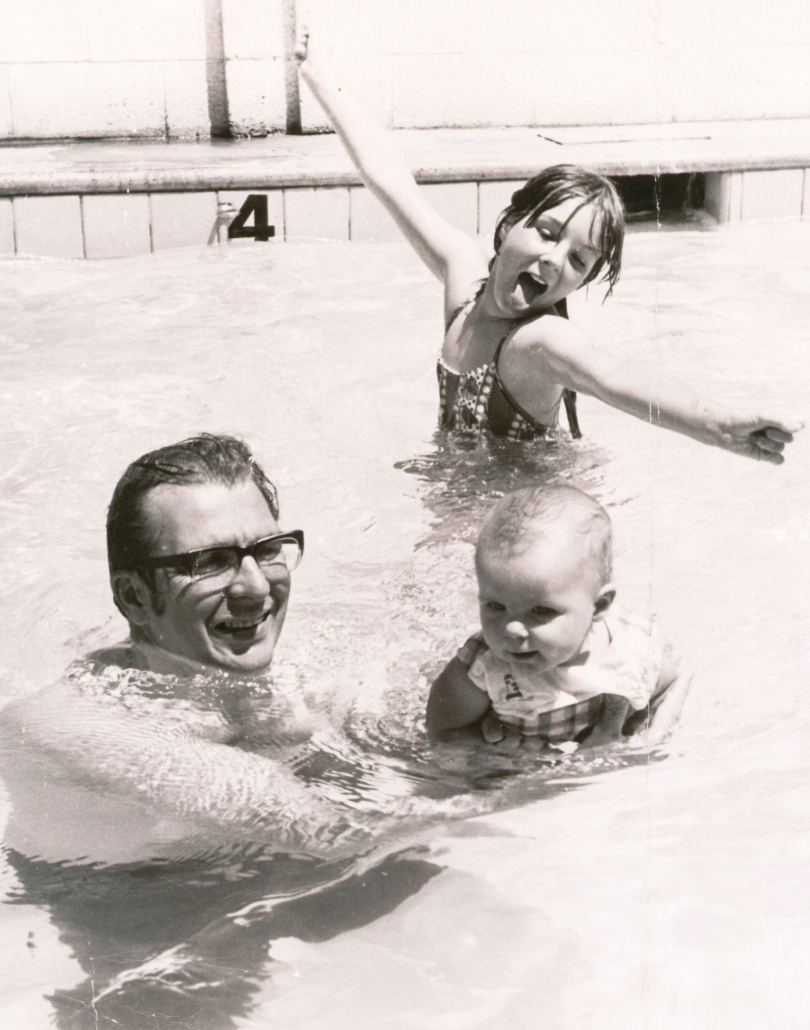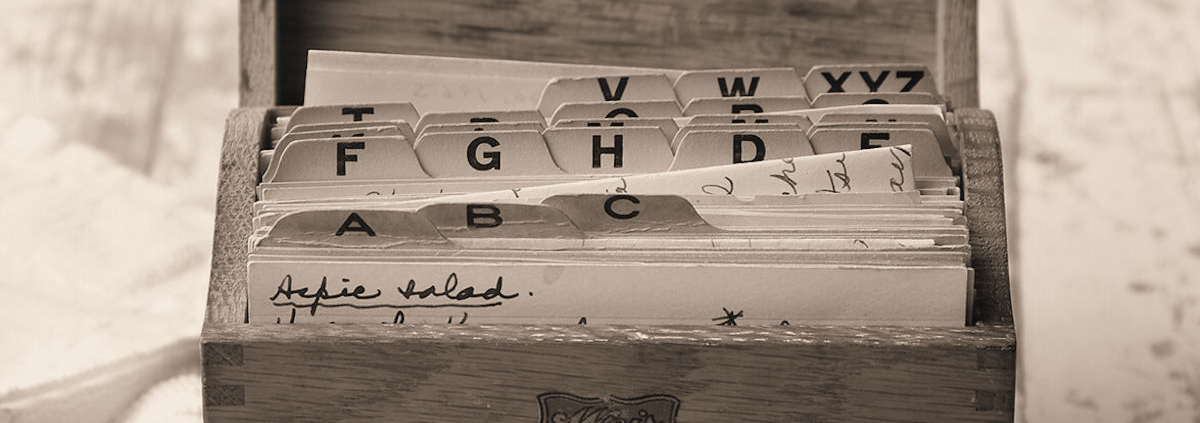I am spending a lot of time working on the history of my parents. It is a complex project.
Anyone attempting to write the history of people they love is confronted with great challenges. How do you tell the story and get it right? How do you handle weaknesses? How do you handle their conflicts? How do you relate all the mistakes, all the bad decisions and all the humanity of their lives without distorting their goodness or impacting how they might be seen by future generations?
It is a minefield.
One of the many stories I want to tell of my Mom and Dad lies in their spiritual journeys. Mom and Dad could not have been more different in their spiritual experiences.
It was something I heard them frankly discuss. I also had conversations with them about it individually. I heard their testimonies and their questions. My Dad in particular was frustrated and felt unworthy, especially when he compared his spiritual experiences to those of my Mother.
Dad’s experiences were of the “still small voice” variety. There were no great visions, no visitations, no grand manifestations or detailed revelations.
He told me once of how he had a spiritual experience as a boy about the Prophet Joseph Smith. He just was given the gift to know that Joseph was a prophet. It was after that boyhood experience that Dad actually engaged in the scholarly work of exploring the things that Joseph actually wrote and taught. He felt his spiritual confirmation as a young man aided his doubting adult mind and opened him up to what Joseph brought forward.
Mother’s experiences were much more dramatic.
As a convert, she was given a spectacular experience as she read the Book of Mormon. Mom had a near death experience related to a miscarriage in which she visited the other side, was talked to and given a choice. Her spiritual gifts, as they are called, were completely opposite of my Dad.
What has been instructive in all this as their son has been that my spiritual experiences can and do go either way. I seem to have inherited a little of both, if such a thing can be inherited. What it has taught me is a reverence for the experiences people claim.
I have learned to respect them. I think it is important to learn what we can from the spiritual experiences of others, rather than to be critical of them.
On these pages I have not shied away from sharing the dreams, visions and otherworldly experiences of family through the ages.
I share them because they are a part of the people we love, regardless of whatever Church they were a part of in this life.
With all that being said, I’d like to share below two deeply spiritual experiences that have come across that give me much to ponder.
These come from men who are not exactly related – but they are connected to us as family.
~ Zeke Johnson’s Witness of a Resurrection ~
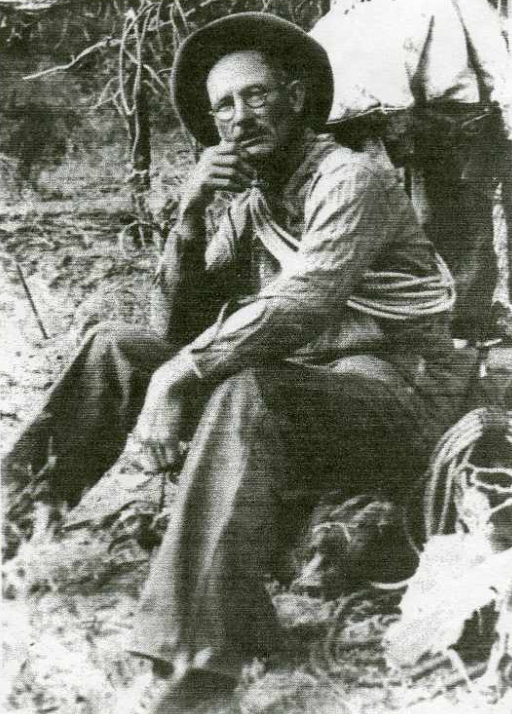
Zeke Johnson was the son of Joel Hills Johnson, who I’ve talked about before. He lived from 1869 to 1957.
Around the year 1908 he had a profound experience while plowing a field. This is his telling of that experience:
“I have been requested to relate an experience I had in 1908-9 in San Juan Co. I was just making a home in Blanding and the whole country there was covered with trees and sagebrush. I was working hard to clear the ground to plant a few acres of corn. We had five acres cleared and stared to plant corn. My little boy, Roy, about 7 or 8 years old was there to help me plant the corn. I’d plow around the place, then he would plant the furrow with corn, then I’d cover it and plow again. While I was plowing on that piece of ground, I discovered there were ancient houses there, that is the remains of them.
As I was plowing around I noticed that my plow had turned out the skeleton of a small child, the skull and backbone, but most of the bones of course were decayed and gone. Part of the skeleton was there, so I stopped immediately as my plow had passes it a little. I turned and looked back against the bar of the plow between the needles. As I was looking at that little skeleton that I had plowed out and wondering, all of a sudden, to my surprise, I saw the bones begin to wiggle and they began to change position and to take different color and within a minute there lay a beautiful little skeleton. It was a perfect little skeleton.
Then I saw the inner parts of the natural body coming in the entrails, etc. I saw the flesh coming on, and I saw the skin come on the body when the inner parts of the body were complete. A beautiful head of hair adorned the top of the head, and in about a half minute after the hair was on the head, it had a beautiful crystal decoration in the hair. It was combed beautifully and parted on one side. In about half a minute after the hair was on the head, the child raised up on her feet. She was lying a little on her left side with her back toward me. Because of this I wasn’t able to discern the sex of the child, but as she raised, a beautiful robe came down over her left shoulder and I saw it must be a girl.
She looked at me and I looked at her, and for a quarter of a minute we just looked at each other smiling. Then in my ambition to get hold of her, I said, ‘Oh you beautiful child.’ I reached out as if I would embrace her and she disappeared. That was all I saw, and I just stood there and wondered and thought for a few minutes… Now, I couldn’t tell that story to anyone, because it was so mysterious to me and such. Why should I have such a miraculous experience? I couldn’t feature a human being in such a condition as to accidentally plow that little body out and see it come alive. A body of a child about 5 to 7 years old, I’d say. I just couldn’t tell that story to anyone until finally, one day I met a dear friend of mine, Stake Patriarch, Wayne II. Redd of Blanding. He stopped me on the street, and said, ‘Zeke, you have had an experience on this mesa you won’t tell, and I want you to tell me.’ Well, I told it to him. Then he had me tell it to other friends and since then I’ve told it in 4 temples in the United States, and many meeting houses, many socials, Fast meetings, and at Conference time.
I wondered and worried about it for years as to why I was allowed to see it, a common man like me – uneducated as I was. Why was I, just a common man, allowed to see such a marvelous manifestation of God’s powers? One day as I was walking along with my hoe on my shoulder, going to hoe some corn, something said, ‘Stop under the shade of the tree for a few minutes and rest.’ This just came to me and I thought I would, so I stopped there and this was given to me:
It was an answer to my prayers. I prayed incessantly for an answer as to why I was privileged to see that resurrection. Then I was told why. When the child was buried there, it was either in time of war with the different tribes, or it was wintertime when the ground was frozen, and they had no tools to dig deep graves. If it were during time of war they couldn’t possibly take time to dig a deep grave. They just planted the little body as they could under the circumstances. Then it was done, the sorrowing Mother knew that it was such a little shallow grave that in her sorrow she cried out to the little group present, ‘That little shallow grave, the first beast that comes along will smell her body, and will dig her up and scatter her to the four winds. Her bones will be scattered all over these flats.’
There just happened to be a man present holding the Priesthood. (A Nephite or a Jaredite, I don’t know which, because they both had been in this country.) This man said, ‘Sister, calm your sorrows. Whenever that little body is disturbed or uncovered, the Lord will call her up and she will live.’ Since that time I have taken great comfort, great cheer, consolation, and satisfaction with praise in my heart and soul, until I haven’t the words to express it, that it was I that uncovered that little body.
Thank you for listening to me. I just can’t tell this without crying.”
I am gratified to have this experience shared in Zeke Johnson’s own words. I think such sacred experiences need to be shared this way.
As I try to write the sacred things my Mom and Dad passed through I struggle with getting the details right and accurately reflecting things correctly. This is one reason why these sacred things need to be prayerfully considered.
My mother once told me of a profound experience she had. She told me there were things about it she could share and other things she could never share. She never betrayed the charge she was given to keep some things to herself. But she wanted me to understand that those sacred things were given to her anyway.
I find this a common thread as I research and learn of the sacred experiences of others. Even still, there are a great many instructive things we can takeaway from what they can share. Such is the case in this next story.
~ The Vision of Heber Hale ~
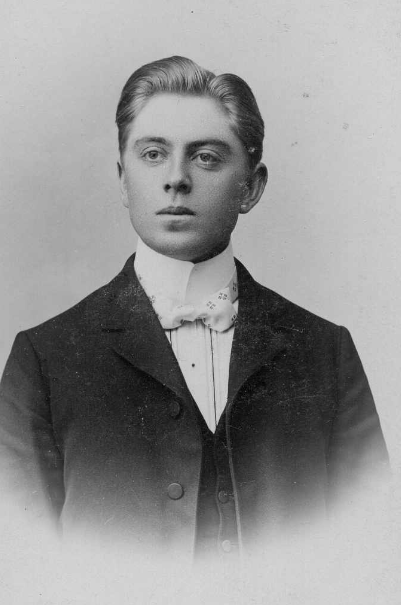
Heber Hale was the son of Solomon and Anna Clark Hale. Our family connection is told somewhat in this post, as Anna Clark was once a plural wife of James C. Snow.
Heber was born in a stalwart Mormon family. The lives of Soloman and Anna Clark Hale testify of the environment he grew up in.
So it is no surprise that in later life Heber served in leadership positions in the Church. He was faithful to those things he was taught.
Still, he had his spiritual struggles. For Heber, there was difficulty for him in understanding the proxy work that takes place in temples. Even while a Church leader he prayed over his questions that troubled him.
Those questions and prayers led to this experience:
“It is with a very humble and grateful spirit that I attempt to relate on this occasion (by request) a personal experience, which is very sacred to me. I must, of necessity, be brief.
Furthermore, there were certain things made known to me which I don’t feel at liberty to relate here. Let me say, by way of preface, that between the hours of twelve and seven-thirty in the night of January 20, 1920, while alone in a room at the home of W. R. Rawson in Carey, Idaho, this glorious manifestation was vouchsafed to me. I was not conscious of anything that transpired during the hours mentioned, except what I experienced in this manifestation. I did not turn over in bed, nor was I disturbed by any sound, which, indeed, is unusual for me. Whether it be called a dream, an apparition, a vision, or a pilgrimage of my spirit into the world of spirits, I know not. I care not. I know that I actually saw and experienced the things related in this heavenly manifestation, and they are as real to me as any experience of my life. For me, at least, this is sufficient.
Of all the doctrines and practices of the Church, the principle of vicarious work for the dead has been the most difficult for me to comprehend and wholeheartedly accept. I consider this vision as the Lord’s answer to the prayer of my soul on this and certain other questions.”
“I passed but a short distance from my body through a film into the world of spirits. This was my first experience after going to sleep. I seemed to realize that I had passed through the change called “death,” and I so referred to it in my conversation with the immortal beings with whom I immediately came in contact. I readily observed their displeasure at our use of the word death and the fear which we attach to it. They use there another word in referring to the transition from mortality to immortality, which word I don’t recall, and I can only approach its meaning and the impression which was left upon my mind by calling it “the new birth.”
My first visual impression was the nearness of the world of spirits to the world of mortality. The vastness of this heavenly sphere was bewildering to the eyes of the spirit-novice. Many enjoyed unrestricted vision and unimpeded action, while many others were visibly restricted as to both vision and action. The vegetation and landscape were beautiful beyond description — not all green as here, but gold with varying shades of pink, orange, and lavender, as the rainbow. A sweet calmness pervaded everything.
The people I met there — I did not think of them as spirits, but as men and women — self-thinking and self-acting individuals, going about important business in a most orderly manner.
There was perfect order there and everybody had something to do and seemed to be about their business.
That the inhabitants of the spirit world are classified according to their lives of purity and their subservience to the Father’s will, was subsequently made apparent. Particularly was it observed that the wicked and unrepentant are confined to a certain district by themselves, the confines of which are as definitely determined and impassable as the line marking the division of the physical from the spiritual world — a mere film, but impassable until the person himself was changed. This world of spirits is the temporary abode of all spirits pending the resurrection from the dead and the judgment. There was much activity within the different spheres, and appointed ministers of salvation were seen coming from the higher to the lower spheres in pursuit of their missionary appointments.
I had a very pronounced desire to meet certain of my kin folk and friends, but I was at once impressed with the fact that I had entered a tremendously great and extensive world, even greater than our earth and more numerously inhabited. I could be in only one place at a time, could do only one thing at a time, could look in only one direction at a time, and accordingly, it would require many, many years to search out and converse with all those I had known and those whom I desired to meet unless they were especially summoned to receive me.
All men and women were appointed to special [and regular] service under a well organized plan of action directed principally toward [preaching the gospel to the unconverted, teaching those who seek for knowledge and] establishing family relationships and gathering genealogies for the use and benefit of mortal survivors of their respective families, that the work of baptism and [the] sealing [of] ordinances may be vicariously performed for the departed in the temples of God upon the earth. The authorized representatives of families in the world of spirits have access to our temple records and are kept fully advised of the work done therein, but the vicarious work done here does not become effective automatically.
The recipients must first believe, repent, and accept baptism and confirmation; then certain [officiating] consummating ordinances are performed effectualizing these saving principles in the lives of these regenerated beings. And so the great work is going on — they doing a work there which we cannot do here, and we a work here which they cannot do there for the salvation of all God’s children who will be saved.
I was surprised to find there, no babes in arms. I met the infant son of Orson W. Rawlings, my first counselor. I immediately recognized him as the baby who died a few years ago, and yet he seemed to have the intelligence and, in certain respects, the appearance of an adult, and was engaged in matters pertaining to his family and its genealogy. My mind was quite contented upon the point that mothers will again receive into their arms their children who died in infancy and will be fully satisfied; but the fact remains that entrance into the world of spirits is not an inhibition to growth but the greatest opportunity for development. Babies are adult spirits in infant bodies.
I [presently] beheld a mighty multitude of men — the largest I had ever seen gathered in one place, whom I immediately recognized as soldiers — the millions who had been slaughtered and rushed so savagely into the world of spirits during the great world war. Among them moved calmly and majestically, a great general in supreme command. As I drew nearer, I received the kindly smile and generous welcome of a great loving man — General Richard W. Young. Then came the positive conviction to my soul, that of all the men living or dead there is not one who is so perfectly fitted for the great mission unto which he had been called. He commands immediately the attention and respect of all the soldiers. He is at once a great general and a great High Priest of God. No earthly field of labor to which he could have been assigned could compare with it in importance and extent. I passed from this scene to return later, when I found General Young had this vast army of men completely organized with officers over successive divisions, and all were seated, and he was preaching the Gospel in great earnestness [to them].
As I passed forward, I soon met my beloved mother. She greeted me most affectionately and expressed surprise at seeing me there and reminded me that I had not completed my allotted mission on earth. She seemed to be going somewhere and was in a hurry and accordingly took her leave, saying that she would see me again soon.
I moved forward, covering an appreciable distance and consuming considerable time, viewing the wonderful sights of landscape, parks, trees, and flowers, and meeting people, some of whom I knew, but many thousands of whom I did not recognize [as acquaintances]. I presently approached a small group of men, standing in a path lined with spacious stretches of flowers, grasses, and shrubs, all of [a] golden hue, marking the approach to a beautiful building. The group was engaged in earnest conversation. One of their number parted from the rest and came walking down the path.
I at once recognized my esteemed President Joseph F. Smith. He embraced me as a father would his son and, after a few words of greeting, quickly remarked: “You have not come to stay,” which remark I understood more as a declaration than an interrogation. For the first time I became fully conscious of my uncompleted mission on earth and, [as] much as I would have liked to remain, I at once asked President Smith, if I might return [to earth]. “You have expressed a righteous desire,” he replied, “and I shall take the matter up with the authorities and let you know later.”
We then returned and he led me toward the little group of men from whom he had just separated. I immediately recognized President Brigham Young and the Prophet Joseph Smith. I was surprised to find the former a shorter and heavier built man than I had pictured him in my mind to be. On the other hand, I found the latter to be taller than I had expected to find him. Both they and the President were possessed of a calm and holy majesty, which was at once kind and kingly. We then retraced our steps and President Smith took his leave saying he would see me again.
From a certain vantage point, I was permitted to view this earth and what was going on here. There was no limitation to my vision and I was astounded at this. I saw my wife and children at home. I saw President Heber J. Grant at the head of the great Church and Kingdom of God, and felt the divine power that radiates from God giving it light and truth and guiding its destiny. I beheld this nation, founded as it is upon correct principles and designed to endure, but beset by evil and sinister forces that seek to lead men [astray and thwart] the purposes of God. I saw towns and cities, the sins and wickedness of men and women. I saw vessels sailing [upon] the oceans and scanned the battle-scarred fields of France and Belgium.
In a word I beheld the whole world, as if it were but a panorama passing before my eyes. Then there came to be the unmistakable impression that this earth and scenes and persons upon it are open to the vision of the spirits only when special permission is given, or when they are assigned to special service here. This is particularly true of the righteous, who are busily engaged in two fields of activity at the same time. [They may be active among the living as well as the dead.]
The wicked and unrepentant [spirits] have still, like the rest, their free agency, and, applying themselves to no useful or wholesome undertaking, seek pleasure about their old haunts and exalt in the sin and wretchedness of degenerated humanity. To this extent they are still tools of Satan. It is these idle, mischievous, and deceptive spirits who appear as miserable counterfeits at spiritualist séances, table dances, and ouija board operation. The noble and great ones do not respond to the call of the mediums and to every curious group of meddlesome inquirers. They would not do it in the world of mortality, certainly they would not do it in their increased state of knowledge in the world of immortality. These wicked and unrepentant spirits are allies of Satan and his host, operating through willing mediums in the flesh.
These three forces [Satan, his host, and the unrepentant spirits] constitute an unholy trinity upon the earth and are responsible for all the sin, wickedness, distress, and misery among men and nations.
I moved forward feasting my eyes upon the beauty of everything about me and glorifying in the indescribable peace and happiness that abound in everybody and through everything. The farther I went the more glorious things appeared. While standing at a certain vantage point, I beheld, a short distance away, a wonderful, beautiful temple capped with golden domes, from which emerged a small group of men dressed in white robes, who paused for a brief conversation. They were the first I had seen thus clad; the millions that I had previously seen were in uniforms.
In this little group of holy men my eyes cantered upon one more splendorous and holy than the rest. While I thus gazed, President Joseph F. Smith parted from the others and came to my side. “Do you know him?” he inquired. I quickly answered, “Yes, I know him. My eyes behold my Lord and Savior.” “It is true,” said President Smith. And, oh, how my soul thrilled with rapture and unspeakable joy filled my heart.
President Smith informed me that I had been given permission to return and complete the mission upon the earth which the Lord had appointed to me to fulfill. Then with his hand upon my shoulder he uttered these memorable and significant words,
“Brother Heber, you have a great work to do. Go forward with a prayerful heart and you shall be blessed in your ministry. From this time on never doubt that God lives, that Jesus Christ is His Son, the Savior of the world, that the Holy Ghost is a God of Spirit and the messenger of the Father and the Son. Never doubt the resurrection of the dead, the immortality of the soul; that the destiny of man is eternal progress. Never again doubt that the mission of the Latter-Day Saints is to all mankind, both the living and the dead; that the great work in the holy temples for the living and the dead has only begun. Know this: that Joseph Smith was sent of God to usher in the gospel dispensation of the Fullness of Times, which is the last unto mortals upon the earth. His successors have all been called and approved of God. President Heber J. Grant is at this time the recognized and ordained head of the Church of Jesus Christ upon the earth. Give him your confidence and support. Much of what you have seen and heard here you will not be permitted to repeat when you return.” Thus saying he bade me goodbye and God bless you.
Quite a distance through various scenes and passing innumerable people I travelled before I reached the spheres which I had first entered. On my way I was greeted by many friends and relatives, certain of whom sent words of greeting and counsel to their dear ones here — my mother being one of them. One other I will mention. Brother John Adamson, his wife, his son James, and their daughter Isabelle, all of whom were killed by the hand of a foul assassin in their home at Carey, Idaho, on the evening of October 29, 1915. They seemed to divine that I was on my way back to mortality and immediately said (Brother Adamson was speaking), “Tell the children that we are very happy and very busy and they should not mourn our departure, nor worry their minds over the way in which we were taken. There is purpose in it, and we have a work to do here which requires our collective efforts, and which we could not do individually.” I was at once made to know that the work referred to was that of genealogy on which they are working in England and Scotland.
One of the grandest and most sacred things of heaven is the family relationship. The establishment of a complete chain without any broken links brings a fulness of joy. Links wholly bad will be dropped out and either new links put in or the two adjoining links welded together. Men and women everywhere throughout the world are being moved upon by their departed ancestors to gather genealogies. These are the links for the chain. The ordinances of baptism, endowments, and sealings performed in the temples of God, by living, for the dead are the welding of the links. Ordinances are performed in the spirit world effectualizing the individual recipient for the receiving and saving principles of the gospel vicariously performed here.
As I was approaching the place where I entered, my attention was attracted towards a number of small groups of women preparing what appeared to be wearing apparel. Observing my inquiring countenance one of the women remarked, “We are preparing to receive Brother Worthington very soon.” As I gasped his name in repetition I was admonished, “If you knew the joy and the glorious mission that awaits him here, you would not ask to have him longer detained upon the earth.” Then came flooding my consciousness this awful truth that the will of the Lord can be done on earth as it is in heaven only when we resign completely to His will and let His will be done in and through us. On account of the selfishness of many, persons who might have otherwise been taken in innocence and peace have been permitted to live, and have lived to their own peril and this assertion of personal will as against the will of God. Phillip Worthington died January 22, 1920, of which I was advised by telegram and returning to Boise I preached his funeral sermon on January 25, 1920.
Men, women, and children are often called to missions of great importance on the other side. Some respond gladly while others refuse to go, and their loved ones will not give them up. Also, many die because they have not the faith to be healed. Others yet, live among and pass out of the world of mortals without any special manifestation of the divine will. When a man is stricken ill, the question of prime importance is not: “Is he going to live?” or, “Is he going to die?” (What matters isn’t whether he lives or dies as long as the will of the Father is done!)
Surely we can trust him with God. Herein lies the special duty and privilege of administration by the right and authority of the Holy Priesthood, namely: It is given to the Elders of the Church of Jesus Christ to divine the will of the Father concerning the one upon whose head their hands are held. If for any reason thy are unable to presage the Father’s will, then they should continue to pray in faith for the afflicted one, humbly conceding supremacy to the will of God, that His will may be done in earth as it is done in heaven.
The righteous person’s birth into the world of spirits is a glorious privilege and blessing. The greatest spirits in the family of the Father have not usually been permitted to tarry longer in the flesh than to perform a certain mission; then they are called to the world of spirits where the field is greater and the workers fewer. This earthly mission may therefore be long or short as the Father wills.
I now declare to the world that irrespective of [the opinion] of others I do know of my own positive knowledge and from my own personal experience, that God is the Father of the spirits of all men, and that He lives; that Jesus Christ is His Son and the Saviour of the world; that the spirit of man does not die but survives the change called death and goes to the world of spirits; that the world of spirits is on or near this earth; [that man’s individuality is not lost by death, nor is his progress inhibited,;] that the principles of salvation are now being taught to the spirits and the great work of joining the Father’s family among the living and the dead is now in progress, and that but comparatively few will ultimately be lost; that spirits will literally take up their bodies again in the resurrection; and that the gospel of Jesus Christ has [again] been established upon the earth with all of its keys, powers, authority, and blessings through the instrumentality of the Prophet Joseph Smith; that this is the power that will not only save and exalt everyone who yields obedience to its principles, but will ultimately save the world; that the burden of our mission is to save souls unto God; and that the work for the salvation of the dead is of no less importance than the work for the living.”
~ Resisting the Urge to Be Critical ~
I watched a movie recently called Heaven is for Real. It tells the fairly recent story of Todd Burpo, whose 4 year old son experienced the other side during an operation for a burst appendix.
The movie was less about the experience itself than the story of what Mr. Burpo endured as a result of what he learned through his child.
It threw him into a crisis of faith. And, as we have seen all too many times, it told the story of people who mocked, doubted and criticized him as a faith leader because of the details he shared of his son’s experience.
We see this all the time. People mock what they fear or are ignorant about.
This is one of the reasons why I feel it is important that we share the spiritual experiences we have, where we are allowed.
Like my Mom and Dad, our personal spiritual experiences are going to vary. To some are given more, to others less.
So when I share experiences like the ones above I encourage an open mind. Much as family stories will vary in the telling by individual the “belief”, if you will, in the spiritual experiences of others is going to be different.
Some may be beyond belief, at least from what our minds know and understand right now.
Even still, it is important to know these stories and to appreciate the perspectives they come from. I believe there is great value in knowing of them even if we don’t embrace them as 100% truth.
I think there is purpose in these experiences and I will continue to share them as I discover them.
I am learning that these experiences are starting to add up. In these pages we have shared many of them – the blessing received of the stranger by Ann Findley Westover, the other-side experience of Ella Jensen, the vision of the baptism of family members by Alexander Westover, and many others.
There’s a reason our ancestors and some of our family here now have these experiences. The more we can absorb them the more we can learn and be prepared for the spiritual experiences held in reserve for ourselves.

